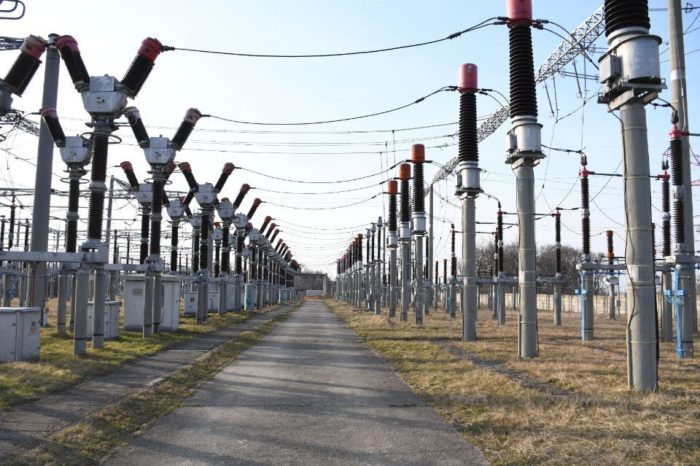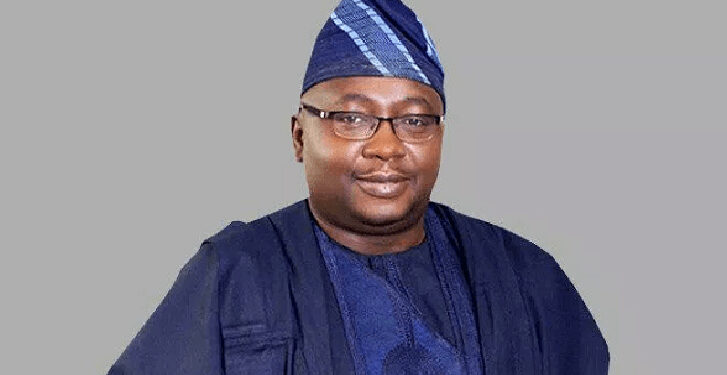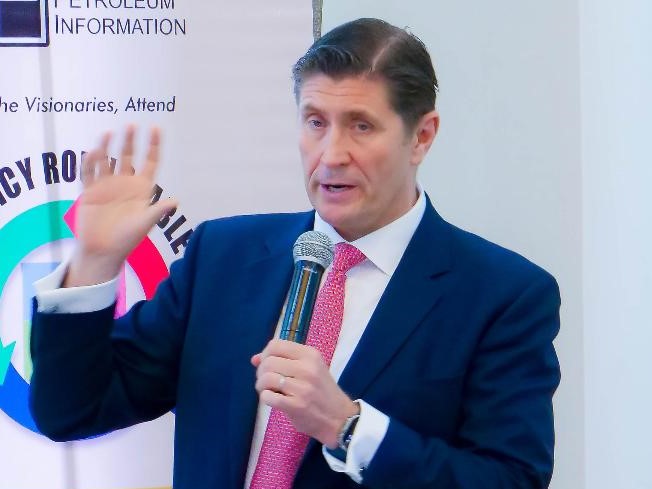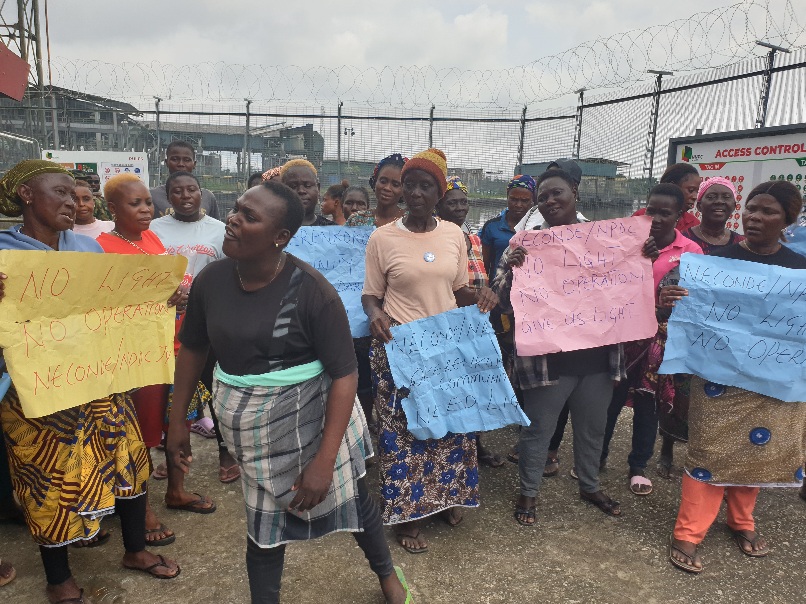Epileptic power supply: Govs contract consultants to break Discos monopoly
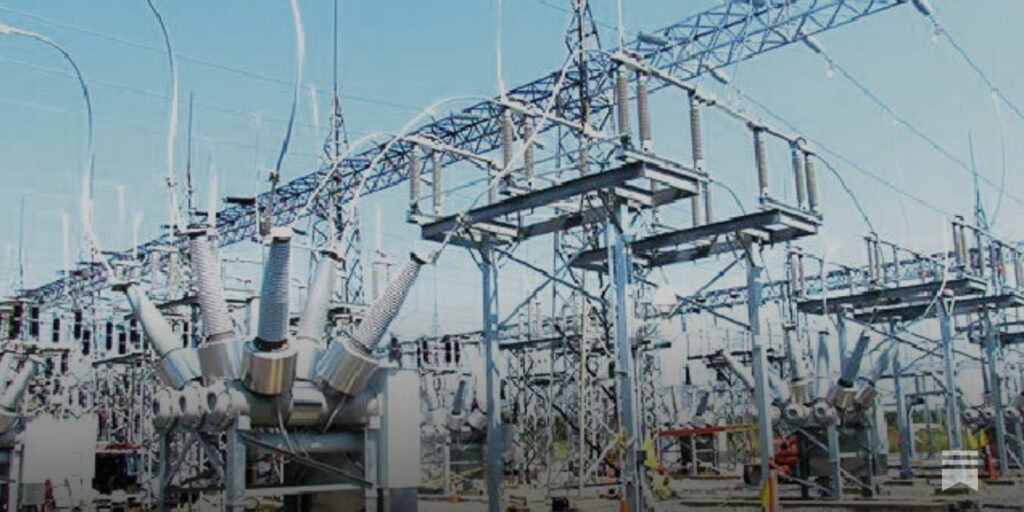
Ilenre Irele
Governors of the 36 states of the federation have in unison come to agreement to work together to tackle epileptic power supply in the country.
To realize this objective, the governors have resolved to take steps to break the monopoly of Discos in power distribution across the states.
Recall that in March 2023, former president Muhammadu Buhari signed into law the constitutional amendment allowing states in the country to licence, generate, transmit, and distribute electricity.
This was made known in a tweet by the presidential media spokesperson, Tolu Ogunlesi.
“President #MBuhari has signed 16 constitution amendment bills into law. By this signing, State Houses of Assembly and judiciaries now have constitutionally guaranteed financial independence, while railways have moved from the exclusive legislative list to the concurrent list.
“Another landmark change. By virtue of the presidential assent, Nigerian states can now generate, transmit, and distribute electricity in areas covered by the national grid. (This) wasn’t allowed pre-amendment. This is genuine, realistic restructuring — through the constitution,” he wrote.
With the Fifth Alteration Bill No. 33, Devolution of Powers (National Grid System), Nigeria’s 36 states can now generate their own electricity.
President Bola Tinubu recently signed the Electricity Act of 2023 into law, marking an important development in the country’s electricity sector.
This Act aims to break the monopoly in electricity generation, transmission, and distribution at the national level.
The Act grants the power to generate, transmit, and distribute electricity to states, companies, and individuals.
In March 2023, Buhari had signed a constitutional amendment allowing states to license the generation, transmission and distribution of electricity.
Based on the amendment, Nigerians can now participate in the electricity supply business, which was previously the exclusive preserve of the FG, as administered by the stage regulator, the Nigerian Electricity Regulatory Commission.
States are required to create their laws and the state governors must sign those laws.
With the constitution amended, and the National Assembly having passed a law for the electricity sector in line with the amendment, the states will now proceed to establish their laws based on the constitutional amendment.
The 2023 Electricity Act, by virtue, allows anyone to construct, own, or operate an undertaking for generating electricity exceeding one megawatt in aggregate at a site.
Also, organised labour, comprising the Nigerian Labour Congress and Trade Union Congress, has asked the 36 states and the Federal Capital Territory to work out modalities to break the monopoly of the power distribution companies (also known as Discos) in the country.
According to the labour unions, the discos, as currently constituted, are enjoying a monopoly in power distribution, making them ‘behave in ways that are untoward’ towards their customers.
The Deputy President of the TUC, Dr Tommy Etim, was quoted recently as saying that the issue of estimated billing was killing the populace, stressing the need for all homes in the country to have metres.
He also noted that the new Electricity Act had made things easier for the country, as states could now own and run their own discos.
He said, “Labour also takes the position that every household should be metered. So that whatever anyone is paying will be known rather than estimated billing. Organised Labour frowns at the increase in tariff.
“Again, the continuous refusal to meter homes, even for those who have already paid for it for more than a year or more is unfair. We are not happy about it.
“We call on the Federal Government to ensure that those things are put in place, and states should begin to invest in power infrastructure in line with the new law signed by the former president, Muhammadu Buhari.”
On his own, the Director General of the Nigeria Governors’ Forum, Asishana Okauru, said governors were resolute in their determination to tackle the problem of poor power supply in Nigeria by taking advantage of the power they now had with the Electricity Act (2023).
He said, “States are taking advantage of the new law on power.”
He noted that the NGF had taken a ‘leading and coordinating role’ in seeing to the implementation of the Electricity Act at the sub-national level.
“We have assisted the states as they grapple with the reality of establishing their electricity markets.
“To achieve this, we have set up a dedicated power desk at the NGF Secretariat, engaged consultants, facilitated the constitution of a Forum of Commissioners of Power in the 36 states, and engaged with stakeholders, local and international.
“Additionally, we have enlisted the support of donors who have shown a remarkable interest in working with the states through the NGF secretariat. There is still a lot of work to be done. However, we are on the right track.”
Recently the Federal Government hinted that it had commenced the restructuring of the 11 discos in the country.
The Minister of Power, Adebayo Adelabu, made this known while speaking during a visit of the Senate Committee on Power to the Ministry of Power and the Transmission Company of Nigeria in Abuja recently.
The government also ordered the sale of DisCos that had been taken over by banks and the Assets Management Corporation.
Five distribution companies are currently under the management of banks and AMCON due to their inability to repay their loans to financial institutions.
Five distribution companies are currently under the management of banks and AMCON due to their inability to repay their loans to financial institutions.
The Abuja DisCo is under the management of the United Bank of Africa, while Fidelity Bank manages the Benin DisCo, Kaduna DisCo and Kano DisCo.
The Ibadan DisCo is under the AMCON management.
Addressing the Senate Committee on Power on Monday, Adelabu said, “We are unbundling the DisCos along state lines.
“Some of the DisCos are too big for efficiency. They are too big for effectiveness. Ibadan DisCo covers seven states. It is practically impossible for them to be efficient.
“So, we are rearranging and restructuring the DisCos along state lines, so that each state government will know the responsible DisCo for their states. Also, the federal and state governments should start exercising their rights in the operation and management of the DisCos, because we still own 40 per cent of the firms.
“But, we have left it for the private sector operators for too long, and they have messed it up. The government must return to take over its rights in the DisCos. We are also planning to franchise the un-served communities under the DisCos,” Adelabu said.
He said the decisions on the DisCos had become necessary because the Nigerian Electricity Supply industry fails when they refuse to perform.
He added that the ministry would prevail on the Nigerian Nigerian Electricity Regulatory Commission to revoke underperforming licences, and change the management board of the DisCos for non-performance.
“We will start seeing regulations about franchising. The fact that you are an Eko DisCo, for example, doesn’t mean that you cannot have smaller DisCos that are ready to invest in your un-served communities. So, we are looking at franchising.
“We are transforming the DisCos, and very soon, you’ll see that many tough decisions will be taken against these DisCos, because they are the last mile in the sector. If they don’t perform, then the entire industry is not performing,” he said.
Adelabu had said in December 2023 that the country got about 40,000 megawatts of electricity from generators powered by Premium Motor Spirit, popularly called petrol, and those run by Automotive Gas Oil, also known as diesel.
He disclosed this at the ministerial summit on the Integrated National Electricity Policy and Strategic Implementation Plan, while examining the key challenges to Nigeria’s electricity reliability through the prism of governance, adherence to rules/contracts, and finance.
Nigeria’s power generation and supply from its national grid revolves between 3,500MW and 4,500MW for an estimated population of 200 million people.

